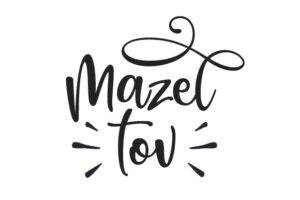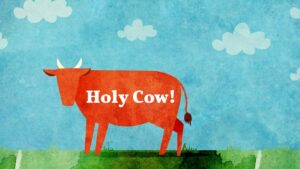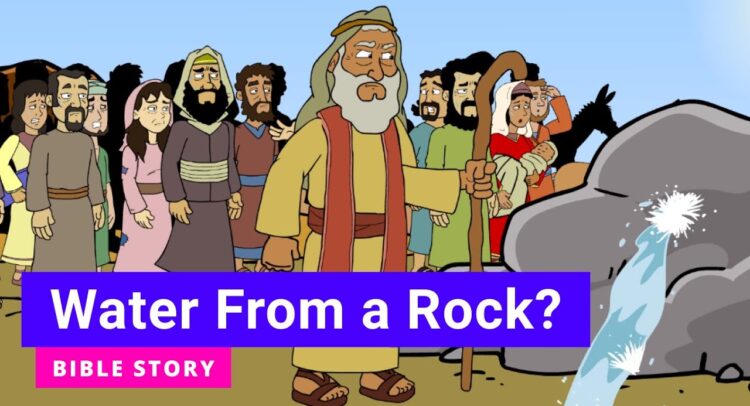Raboyseyee and Ladies,
A big mazel tov to Yaakov Rabi upon his aufruf this coming shabbis and wedding on Tuesday -July 4th mamish. Mazel tov as well to Yaakov’s parents, Rabbi and Mrs. Binyomin and Bluma Rabi and to their entire family who are in from Yirusholayim for this momentous occasion.

Who is Yaakov Rabi? So happens that he will be marrying our beautiful daughter Alex Grossman. Mazel tov to us -Lisa and Yitz Grossman, to our children, to our entire extended family and to the very excited grandparents Ellie and Irv Bader. May Alex and Yaakov merit to enjoy many decades if blissful marriage.

Moishe’s Heinous Crimes
A good director knows that in the end, the story’s hero somehow survives. That’s his job; he’s the hero! The viewing audience goes home happy and a good time was had by all. Walking out of a movie where the hero or heroine don’t make it, leaves many feeling mamish tzibrochen (crushed). We are down; some even cy. And that’s exactly how many will feel after reading the first half of this week’s summer double header of Parshas Chukas and Bolok. To avoid these emotions, it is suggested that you exit early for the kiddish club and get back timely to hear how the Yiddin partied with Moabite shiksas and just how many were killed by the RBSO for their dastardly actions. They, like Koirach, Doson and Aviram -last week- left the stage permanently. Shoin.

I was considering telling you to skip Parshas Chukas altogether and move on to another happier parsha; efsher we should re-read the story of Yaakov and Rochel – a love story mamish- but it’s the heylige Ois’s tafkid (mission) to teach the heylige Toirah as it is, as it was mistama given over to Moishe, avada with a hint of sarcasm and humor. That being said, in my view, there is no more depressing parsha than Chukas. Soon you will chap why.
Hard to believe but over 38 years of midbar time have passed since last shabbis and since we started reading Sefer Bamidbar just a few weeks back. With the exception of the Poro Aduma (the red heifer) story which was decreed in year two of the midbar journey, and to which the first 22 pisukim are dedicated in the parsha, the rest of the action takes place in the beginning of the 40th year. The Poro Aduma is, of course, known as the ultimate in chukim (decrees given down by the RBSO without rhyme or reason), hence the parshas name: Chukas.

The excitement is building. Since childhood you recall that the Yiddin spent 40 years in the midbar valgering around (roaming aimlessly) in the sand and getting into all sorts of trouble -what else was there to do- but you know it’s coming to an end and we should mamish all be happy. The Yiddin are getting ready to enter the promised land. Ober nebech, for some, it’s not meant to be. Raboyseyee: this week we learn the fate of Moishe Rabaynu; a happy ending it is not.
Not just does Moishe get the bad news but also this shabbis we have additional depressing headlines: Miriam Dead!! Aharoin, Moishe’s only brother, the peace maker, is also dead! And between both parsha, thousands of Yiddin also dead as the RBSO continues to thin out the population in advance of land entry. But wait, there is more: the Yiddin are restless again. They are thirsty and want water. Hey it’s the midbar- of course they’re thirsty! They also wanted grain, figs, vines and pomegranates. Were they imaging themselves in the tea room? Sunstroke?
Still more: the Yiddin are attacked by Amolake (for a second time) and go to war against Sichoin. Oh, and let’s not forget that Moishe’s shteken (stick) makes yet another appearance as do snakes, though luckily not his. Yes we get to meet the slithering fiery snakes that attack and kill yet more Yiddin. Is this a parsha you want to learn? A snake and a stick in one parsha are mamish a recipe for disaster, if you chap. Either one can, and typically does cause trouble: together they are deadly!
For readers with severe ADD, that was the parsha recap. For those who want more, here is a quick recap of Parshas Bolok. Bolok, son of Tzipor, king of Moav, hires Bilam – a sorcerer by profession, whatever that meant back then, to curse Israel, Bilam’s donkey speaks, Bilam blesses the Yiddin instead, the Yiddin orgy -as in sexual- with Moabite shiksas. The RBSO is not pleased and kills 24,000.
What the hec is a Poro Aduma (a red cow)? Why do its ashes make people pure and impure? Why do we have this strange law on our books? Excellent kashas and many have wondered the same. Guess what? They have not a clue, but that hasn’t stopped them from pontificating and writing hundreds of medroshim about its uniqueness. The bottom line: The word Chukas means a statute. The commandments of the heylige Toirah are divided into three groups: testimonies, statutes and judgments. Judgments (mishpotim) are logical commandments and include such regular items as thou shall not murder, helping the poor, taking responsibility for damages and respecting parents. We chap the ah-say, even the loi sah-say; we chap them, they make sense, though we don’t always follow the rules. Testimonies (Edois) are Mitzvis that are reasonable but are not logically inherent, such as buying hand baked shmura matzoh for over $35 a pound and eating it until you’re mamish constipated. Statutes (chukim) are mitzvis that are followed purely because that’s what the RBSO told us to do: He’s the big boss, case closed! There are a number of those but for brevity’s sake on this long (weekend) I’ll list but one or two including not eating meat and dairy together, the law of the poro aduma and others. Still with me? Let’s go veyter!
As we learned just above, this is a topic few ever chapped and that includes the heylige Ois. That being stated, many wax on prophetically with their own unique spin as to why, where, when, and other details. Of-course it’s all made up as we really don’t know why and mistama the RBSO didn’t want us to know why. If He did tell us why- hec- it wouldn’t be a chok after all, would it? A chok with a reason is by definition not a chok! Think about that pshat, it’s mamish brilliant! Said Shlomo Hamelech, the wisest of all (though we have to question his wisdom after learning that he had 1,000 wives; what was he thinking?) in Koheles 7:23, azoy: “I thought I could become wise yet it is far from me.” What is the word ‘it’ referring to? The only thing in the world that was beyond his grasp was an understanding of the red heifer. Seemingly he didn’t have trouble grasping the 1,000 wives he collected. Adds the Ba’al HaTurim, an excellent source for gematria of all kinds- that the gematria of the words “and it is far,” “v’he rechoika” = 341 which is also the gematria of the words poro aduma: gevaldig mamish. Nu, if Shlomo and his harem couldn’t figure it out, will we?

Raboyseyee: if I’ve told you once, I’ve told you dozens of times- not everything needs to be understood; it’s all about faith, many times blind faith, and in Chukas, we are told to take a red heifer and do all sorts of things with it. If you’re tomay (impure), it makes you tohoir (pure) and if you’re the one making the tomay tohoir- you become tomay. Got that? Neither do I. Let’s get to the depressing news.
Immediately following the cow laws, Miriam dies and let’s say goodbye to Moishe’s older sister. She was, after all, a good and decent person, seemingly her only aveyro in life was some loshoin hora about Moishe’s black and beautiful, or just beautiful and maybe not black, eishes chayil, or Kushite wife (depending on which pshat talks to you). As kids, we were excited to read that Moishe had black wife, how exotic! It zicher assuaged our guilt when our minds began to wander and as we imagined minuvildike acts with a tinkele beauty. Is loshoin horo so giferlich? Don’t we speak it daily? Anyway it’s not nice to speak ill of the departed, let’s move along.
But let’s give her a shtikel sendoff, a hesped if you will. Our first major hero, the righteous and prophetic sister of Moishe is gone. Some say her name came from the word mar which means bitter, because she was born during the bitterness of the Egyptian oppression. But here’s more. Grada without Miriam, the course of history might look very different. It was she who inspired the birth of Moishe in the first place when she convinced her parents to remarry despite Paroy’s decree against Jewish males. Says the medrish that when Amrom separated from his eishes chayil Yoicheved, Miriam, then only a little girl, said to her father, “Who knows if the redeemer might come from your union.” And what happened? That put Amrom and Yoicheved into the mood, and shoin, Moishe was born. The Yiddin taka missed her as we learn immediately following her passing.
As mentioned above, the parsha begins in year two of the Midbar and then moves to year 40. What happened in between? Ver veyst, but if the heylige Toirah doesn’t tell us, it’s none of our business and let’s move on. Says Rashi: other than the odd cow laws given down at the beginning of the parsha, the rest of the narrative occurred mamish right after the last members of the previous generation, those previously condemned to death a few weeks back in the meraglim incident, all finished dying out. Nu, wouldn’t you expect those lucky enough to have survived this debacle to be on their best behavior? Of course you would, but you’d be dead wrong. The seemingly not ready for prime time Yiddin, though mamish at the precipice, as they stood anxiously awaiting the goodies that were promised them in the holy land, were acting up again. Say it’s not so please but the Toirah begs to differ. Hadn’t they seen enough in the last 38 years? Just last week they witnessed the earth open its mouth wide to swallow up Koirach and his gang followed by another 14,000+ dead Yiddin. Wake up and smell the coffee! It’s not such a good idea to anger the RBSO. Moreover, thousands more continued to die each year, not all naturally. And in our parsha they’re at it again? Will they never learn? Is it a wonder that the RBSO is always getting this close to wiping them out and starting over again? Oy vey! Mistama you’re thinking to yourself that compared to them, you’re mamish all tzadikkim. Well maybe some of you are, but zicher not all. A good number of you are doing even worse things daily than did they; you know who I’m talking to and what I’m referring to.
Ober, let us get to the main story line of the parsha: Moishe Rabaynu and the infamous encounter with the rock; the story of “Mei Meriva” (the waters of contention). By all accounts Moishe was zicher the greatest leader the Yiddin ever had but this week he too, is in trouble. What terrible thing could he have done? Did he clean out the shul’s coffers? Not! Though he was accused by some back in Parshas Pikudei and that incident gave birth to a sub-specialty of boring accounting: the auditor! Taka, what happened? Nu let’s learn. Says the heylige Toirah (Bamidbar 20:11), “And Moishe raised his arm and struck the rock…” You hear this news? Moishe struck the rock. Not once but twice!
Says the heylige Gemora that after Miriam died, the well, which was a water source for the Yiddin in the midbar, disappeared. The Yiddin were thirsty and complained. In response, the RBSO commanded Moishe to bring forth water from a rock. The heylige Toirah records that Moishe and Aharoin sinned, however the exact nature of the transgression is not specified in the verses. Says Rashi that Moishe’s sin was a result of striking the rock to bring forth water rather than communicating with it. How does one communicate with a rock? Nu, if you’re married, you know: it’s impossible! Let’s get real: What geferliche avayro did he commit and what took place?
Before we answer that, we might question what was written above where we read that both Moishe and Aharoin sinned. Not! Did he hit the rock? He did not? Oib azoy- that being the case, why was he complicit in Moishe’s sin?
Let us review: Moishe hitting the rock instead of communicating with it, is one of the best-known stories of the heylige Toirah, but still there is so much more to learn from it. The RBSO commanded Moishe to speak to the rock. Instead, he struck the rock and from that rock, water came forth.
Let’s check out this pshat: the RBSO’s intention was for a ‘Kal Vechomer’ to take place: as ans aside, a kal vachomer (Hebrew: קל וחומר, literally “lenient and strict”) derives one law from another through the following logic: If a case that is generally strict has a particular leniency, a case that is generally lenient will certainly have that leniency. The people should have said ‘wow, if a rock can listen to a commandment, how much more so, (Kal Vechomer), should we be obeying the commandments.’ Instead, the Yiddin made a different Kal Vechomer. They said, ‘if Moishe of all people can disobey the word of the RBSO, then Kal Vechomer, how much more so, can we disobey His word.’ That logic does epes ring familiar.
The bottom line: Moishe was punished. But notice the wording: ‘Vayedaber Hashem El Moishe V’el Aharoin’, ‘The RBSO called out to Moishe and Aharoin’, because the two of you did not sufficiently believe in me to sanctify my name. the RBSO held both of them accountable. Let’s read the posik innaveynig. Says the heylige Toirah (Bamidbar 20:12) azoy: “Because you didn’t trust Me enough to affirm My sanctity in the sight of the Israelite people, you (plural) shall not lead this congregation in the land that I have given them.” Hold on… where did Aharoin come from? Moishe was the only person involved in this whole, epic drama, Aharoin did nothing. Why does the heylige Toirah say “you” in the plural form? What does it tell us about responsibility? And here comes the gishmake pshat of the week. Aharoin did nothing! He should have done something.
Some would say that it was Aharoin’s responsibility to mitigate the hand of Moishe, he should have stopped him. After all, as Moishe’s brother, it seems like Aharoin would have found himself in many different situations where he would temper Moishe’s choices and vice versa. Aharoin should have stopped Moishe and he didn’t. On the other hand, the commentators note that the first time Moishe hit the rock, Aharoin probably couldn’t stop it. Perhaps it took him by surprise. But what about the second time? When Aharoin didn’t interfere by preventing Moishe from hitting the rock the second time, it was as if he agreed with his action. Silence or lack of action is acquiescence. Aharoin could have changed the course of this tense scene and subsequently changed the course of biblical narrative. What would it have looked like if Moishe could have led the Yiddin into the land and been spared such a harsh punishment from the RBSO? Alas, our hero Moishe did not make it to the end of the story. The movie version could have had a happy ending.

Says the heylige Toirah -back in Parshas Kedoishim- azoy: ‘Hocheiach Tocheiach Amisecho’, ‘you shall surely reprove your fellow’. Pshat is ‘Hocheiach Tocheiach’ in order to tell us that sometimes it’s a mitzvah to intervene. It’s taka emes that Aharoin was but an innocent bystander when Moishe struck the rock, not once, but twice. And that raboyseyee, was seemingly the sin which got his visa into the promised land cancelled. He stood by and did nothing! He could have inspired and motivated his brother to do the right thing but he just stood there, not opening his mouth at all. And therefore, he was an accomplice and suffered the fate of his brother. Both bothers die in Parsha Chukas; our hero taken away before the movie was over. The bottom line: at times, all that is necessary for evil to triumph is for good people to do nothing. Veyter.
Ober, asks the Ramban mamish so gevaldig, azoy: if the RBSO instructed Moishe to take the staff from the Holy of Holies and bring it with him, what was he, Moishe, to think? Was Moishe set-up, entrapped efsher- Let’s review the facts: the RBSO told Moishe to take his stick. Nu, if he’s told to take his stick, the same stick he’s been using for many years, the stick that split the sea and did other wonders, wouldn’t Moishe be led to believe that this same stick will be used to make water? Lemoshol (by way of example) if I invited you to my house and told you to bring a bathing suit, would you not expect to go swimming? And if I invited you over to my house Friday night following shul, would you not expect diner? What’s pshat here? Why did the RBSO get so angry with Moishe when he used his stick? Nu, one day when the Moshiach arrives, I will surely ask this question.
Moreover, for those who remember- way back in Shemois 17:6, the RBSO told Moishe to take his shteken and hit the farkakte rock. If you were Moishe and avada you’re not because in fact you’re an oisvorf, a minuvil and a bum, but if you were, and after hearing such instructions way back when, wouldn’t you think it’s ‘the old hit the rock with the stick routine’ all over again?
Ok, as you can only imagine, hundreds of pages have been written on this episode, each with its own twist as to what went wrong, why the RBSO dealt so harshly with the two brothers, our heroes mamish. And based on what happened to them, can you only imagine what’s in store for us?
Long before David Letterman – remember him? – popularized his ‘top ten list’, the heylige Ohr HaChaim compiled this list of Moishe’s heinous crimes.
- Rashi: the RBSO told Moishe to speak to the rock, but he hit it. We must always bear in mind that properly speaking to someone will accomplish more than physical contact, even something hard as a rock.
- Ibn Ezra: Moishe did not have the right concentration when he hit the rock because he was distracted by the nation’s bickering and complaining that they were thirsty. In other words: when pounding the rock, one needs kavono, if you chap.
- Ibn Ezra: He was only supposed to hit the rock once, because that constituted speaking to it, but he hit it twice. Sometimes a “potch” may be necessary, but it must be exact. Overhitting is verbotten.
- Ibn Ezra: the BNY should have sung a song of thanks to the RBSO. Was Moishe a choir leader as well?
- Ibn Ezra: Moishe called the Yiddin “rebels”. In other words: he insulted them.
- Rambam: Moishe got angry, leading the Yiddin to think that the RBSO was angry at them as well, which was not the case.
- Rabbeinu Chananel: Moishe made it sound as if he and Aharoin were bringing out the water and not the RBSO.
- R”M Kohen: Moishe made it sound like it was impossible for the RBSO to make water come from the rock.
- R”Y Albo (Ikrim): Moishe and Aharoin should have brought the Yiddin water before they even had to complain; he should have had water bottles ready as has become the minhag at chasunas (weddings) during dancing.
- Maaseh Hashem: The Yiddin and Moishe were arguing and Moishe threw his stick onto the rock in anger.
In any event, my understanding is that for whatever reason the RBSO had previously decided that neither Moishe nor his siblings were going to make it over to the land. Why? Ver veyst? It’s all part of the master plan; we are but puppets. Did Moishe do something so giferlich? It’s not like he was playing with his shteken or someone else’s, if you chap. Let’s just say it wasn’t bashert and move on. Efsher the Yiddin needed some younger blood to take over; he was, after all, a mature 120. Did he have the physical strength to walk the hills of Jerusalem? Could he have made it up the hill from the Kotel to the hotels?
A gittin Shabbis-
The Heylige Oisvorfer Ruv
Yitz Grossman
